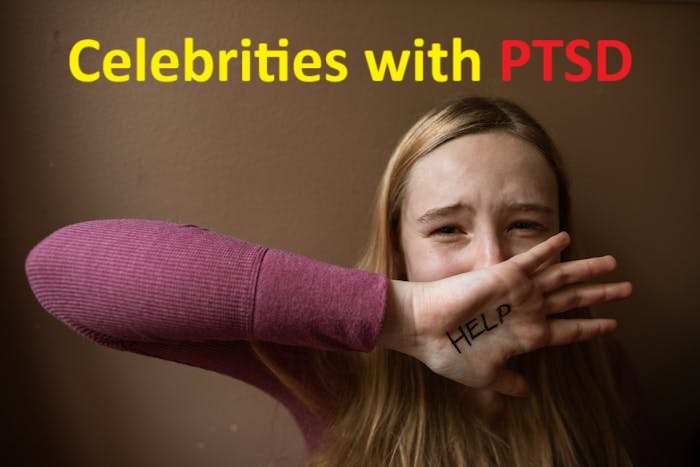Post-Traumatic Stress Disorder (PTSD) is a serious mental health condition triggered by experiencing or witnessing a traumatic event. While often associated with military veterans, PTSD affects people from all walks of life—including well-known celebrities. Many public figures have bravely stepped forward to share their personal battles with PTSD, offering support, insight, and hope to others navigating similar paths.
Signs of PTSD You Should Know
- Flashbacks or nightmares
- Severe anxiety or panic attacks
- Avoidance of trauma reminders
- Emotional numbness or detachment
- Difficulty sleeping or concentrating
1. Lady Gaga
Lady Gaga has openly spoken about her PTSD, which resulted from a sexual assault she experienced at the age of 19. In numerous interviews and during her work with the Born This Way Foundation, Gaga has highlighted the invisible pain of PTSD. She has incorporated themes of trauma and healing in her music and used her platform to demand more attention for mental health.
2. Prince Harry
Prince Harry, the Duke of Sussex, has revealed that the death of his mother, Princess Diana, followed by his service in the British Army, deeply affected his mental health. He has admitted to experiencing panic attacks and severe anxiety—symptoms aligned with PTSD. Through his HeadFIT initiative and the Invictus Games, Harry continues to encourage emotional resilience and openness among veterans and civilians alike.
3. Demi Lovato
Singer and actress Demi Lovato has long been vocal about her struggles with PTSD, which stemmed from abuse and personal tragedies in her childhood and teenage years. Her documentaries and public statements have educated millions on the long-term effects of trauma. Demi’s transparency has helped reduce the stigma surrounding therapy and psychiatric treatment.
4. Tyler Perry
Tyler Perry, the acclaimed filmmaker and playwright, has publicly shared that he developed PTSD after enduring years of childhood abuse. Perry credits therapy and faith as crucial in his journey to healing. He has also created numerous characters and stories that reflect emotional trauma, providing a platform for healing through storytelling.
5. Whoopi Goldberg
Whoopi Goldberg was diagnosed with PTSD after witnessing a mid-air collision while on a plane. The traumatic incident left her with a fear of flying and lasting psychological effects. Her story underlines how PTSD can develop from isolated but life-altering events. Goldberg has shared her coping strategies and emphasized the importance of seeking help.
Read Also: 10 Celebrities with Fetal Alcohol Syndrome
6. Alanis Morissette
Canadian singer-songwriter Alanis Morissette experienced PTSD from the overwhelming pressure and exploitation during her early music career. In interviews, she revealed how sudden fame, lack of control, and industry manipulation left lasting psychological scars. She has since become an advocate for artists’ mental health and emotional boundaries in high-pressure industries.
7. Darryl “DMC” McDaniels
Darryl McDaniels, from the legendary hip-hop group Run-DMC, struggled with depression and PTSD linked to childhood trauma and substance abuse. He credits therapy and writing—especially his autobiography—for helping him face his demons. McDaniels now speaks at schools and events to encourage emotional honesty and early intervention.
8. Monica Seles
Tennis legend Monica Seles was the victim of a horrifying on-court stabbing in 1993. While she physically recovered, the psychological trauma left deep emotional wounds. Seles later revealed she struggled with PTSD, experiencing fear, depression, and withdrawal from the public. Her return to tennis was a testament to resilience and healing.
9. Barbara Streisand
While not always labeled as PTSD, Barbra Streisand’s severe stage fright developed after a traumatic performance mishap early in her career. She avoided live concerts for decades due to anxiety and panic symptoms. With time and therapy, Streisand slowly returned to live performance, sharing her experience to empower others with anxiety disorders.
10. Mickey Rourke
Actor Mickey Rourke served time as a boxer before returning to Hollywood. However, it was his early-life trauma, unstable upbringing, and violence that led to emotional turbulence. Rourke has opened up about his suicidal thoughts and emotional outbursts, later diagnosed as PTSD. His candidness has helped bring attention to the psychological burdens often masked by fame.
Read Also: Top 5 Famous Celebrities with Herpes
Understanding PTSD Through Celebrity Stories
These celebrities prove that PTSD does not discriminate. It can affect anyone, regardless of success, wealth, or status. Each story reflects a journey from trauma to healing, and many have used their platforms to break the silence surrounding mental health.
By speaking openly, they destigmatize the condition and inspire others to seek help. Whether through therapy, medication, spiritual practices, or community support, their coping mechanisms provide valuable lessons for millions silently enduring PTSD.
The Importance of Awareness and Compassion
PTSD affects over 8 million adults in the United States alone each year. The condition can manifest in flashbacks, nightmares, emotional numbness, and difficulty concentrating. When left untreated, it can severely impair quality of life. Celebrities who share their struggles show that vulnerability is a form of strength.
Public figures not only bring awareness but also influence how society perceives and supports those with PTSD. Their courage helps create safer spaces for healing, both on and off the stage or screen.
Conclusion
From royalty to rockstars, the shared thread among these 10 celebrities is resilience. Their willingness to talk about PTSD provides hope and paves the way for more compassionate discussions. Healing is possible, and with the right tools, anyone can regain control of their lives after trauma.
FAQs
1. Can PTSD affect people without military backgrounds?
Yes, PTSD can result from any traumatic experience—not just combat.
2. How do celebrities cope with PTSD?
Most seek therapy, support groups, and mindfulness practices.
3. Is it common for childhood trauma to cause PTSD later in life?
Yes, unresolved childhood trauma is a major cause of PTSD in adulthood.
4. Can PTSD go away on its own?
It rarely does. Professional help is crucial for recovery.
5. What resources are available for those struggling with PTSD?
Mental health professionals, support groups, hotlines, and therapy apps are widely accessible.


